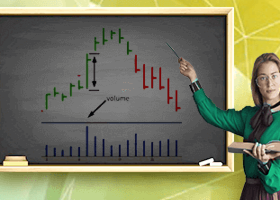Australian Bonds Rally on Brexit, FED Uncertainty
The Australian long-term bonds rallied on Thursday, following US trend as rate hike expectations by the Federal Reserve this summer diminished. The US 10-year treasury yield fell below 1.70 percent mark to 1.6815 percent, as compared to yesterday’s close of 1.707 percent.
Also, investors preferred to buy safe-haven assets after China’s weak CPI data portrayed that the world’s second largest economy continues to battle weak demand.
The yield on the benchmark 10-year Treasury note, which moves inversely to its price fell 6 basis points to 2.109 percent and super-long 15-year bonds yield dipped 6-1/2 basis point to 2.338 percent by 05:50 GMT.
China’s consumer price index (CPI) weakened unexpectedly in May, while factory gate prices fell for the 51st consecutive month, a sign the world’s second largest economy continues to battle weak demand. The consumer prices rose by 2.0 percent y/y in May, less than estimates for 2.2 percent y/y. Moreover, PPI fell by 2.8 percent y/y in May, less than estimates for -3.2 percent y/y and purchasing prices were down 3.8 percent y/y in May, as compared to -4.4 percent y/y in April.
The recent polls showed the outcome of the referendum is too close to call, raising the possibility that Britain might leave the EU after 43 years of membership in the bloc. A new UK EU poll by ORB for the Telegraph, among people saying they will definitely vote in the referendum on the 23rd, 48 percent said they will vote to remain and 47 percent to leave the union.
According to the latest poll conducted by YouGov on the weekend over the ‘Brexit’ referendum, 43 percent voted to 'remain' in the European Union, compared to 41 percent as of May 31, 42 percent voted to 'leave' the EU, compared to 41 percent on May 31. The rest remained indecisive, either declining to vote or not knowing which side to favour.
Moreover, the WTO director general Azevedo said that the UK business competitiveness will be badly hit if the country votes to leave the EU. He adds that although trade will continue, it could be on worse/costlier terms.
Yesterday, Chinese exports fell for the month of May, worse than markets had anticipated on slowed demand for Chinese products in the overseas market. Imports, however, improved beyond market anticipation. Exports fell 4.1 percent last month in dollar terms from the same period a year ago to USD181.1 billion following a 1.8 percent decline in April and leaving a trade surplus of just under $50 billion, the figures showed. Meanwhile, imports fell 0.4 percent in May, a sharp improvement from -10.9 percent in the previous month, data released showed Wednesday.
In addition, China’s imports have been shrinking quite at a fast pace since late 2014 as the economy is facing contraction pressures, buoyed by a slowdown in manufacturing capacity, a slowing housing market and increasing debt burden. The world’s second-largest economy remains a key driver of global growth and a major source of demand for countries like Australia and Nigeria. Trade surplus came in at USD 49.98 billion in May, missing estimates for USD 55.7 billion.
On Tuesday, the Reserve Bank of Australia (RBA) maintained its key interest rate at a record low of 1.75%, as expected. Governor Stevens in his monetary policy statement concluded that the Australian economy continued to grow, but at a lower than average pace. He added that unchanged policy is consistent with CPI returning to target band and the global economy is also growing at lower than average pace. Said dwelling prices have begun to rise again recently and he sees inflation remaining quite low for some time. He further mentioned that several advanced economies have recorded improved conditions over the past year, but conditions have become more difficult for a number of emerging market economies. He said China's growth rate has continued to moderate, though recent actions by Chinese policymakers are supporting the near-term outlook.
We foresee that the CB is unlikely to ease while keeping the cash rate at its all-time low of 1.75% until it gets another read on inflation in late July.
Markets now look ahead to US jobless claims and wholesale inventories data on Thursday, followed by a 30-year Bond auction later in the session. In the near-term we expect US Treasuries will likely continue to hold recent ranges, looking ahead to the FOMC statement next Wednesday before establishing a clearer direction. As mentioned previously, the degree to which markets have priced-out much of anything from the Fed will likely have a day of reckoning as the outlook policymakers use to make their decisions will be the ultimate trump card.
Meanwhile, the benchmark Australia's S&P/ASX 200 index was trading down 0.09 percent, or 5 points, at 5,373.5 by 05:50 GMT.
The material has been provided by 



